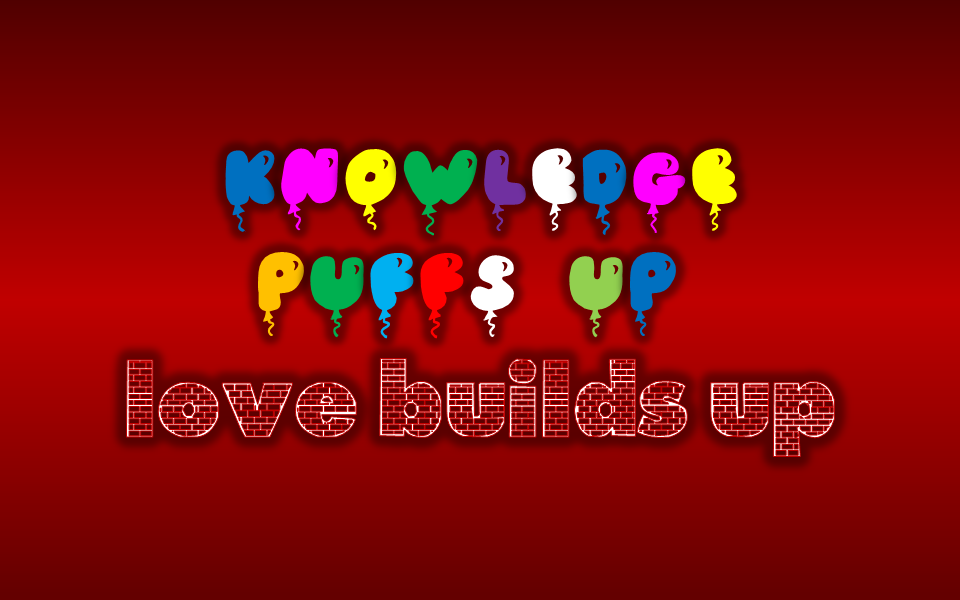Watch the YouTube video here:
Hespeler, 14 February 2021 © Scott McAndless – Transfiguration
2 Kings 2:1-12, Psalm 50:1-6, 2 Corinthians 4:3-6, Mark 9:2-9
I love all of the stories of the Prophet Elijah and of his disciple Elisha. But, by far, the best part of the story of these two extraordinary individuals has got to be the part that we read this morning, the story about how Elijah was taken up into heaven in a whirlwind and there was a chariot of fire. I almost can’t read this story without hearing the Vangelis song ringing through my head. “It’s chariots of fire, it’s chariots of fire, it’s chariots of fire, r r r r r.” (That is how the lyrics go, right?)
Strange Repetitions
But it’s not just about all of the special effects, there is also the question of how the story is told. It’s got this strange form to it. It goes like this. The two men are in one place, and Elijah says to Elisha, “Hey I’m going down to this other place.” And then Elisha responds, “As the Lord lives, and as you yourself live, I will not leave you.” And that, right there, is a pretty clear indication of somebody who has huge separation issues. He is clearly anxious and worried about being separated from Elijah and has some good reason, as we shall see.
But then the story continues from there. The two men move on and arrive at a new place, where they are met by the members of something called, “the company of the prophets,” which is presumably something like a guild of prophets that has been led, up until this point, by the great Elijah. The members of this company come up to Elisha and let him know that Elijah is leaving him and all of them. (Which may, of course, help to explain Elisha’s separation anxiety.) And then Elisha says, “Yes, I know; be silent.”
And then, and this is the really interesting part to me, the whole thing repeats all over again. Elijah says he’s leaving, Elisha responds with his separation anxiety, they go and the members of the company of the prophets come out with the same words and Elisha repeats his “Yes, I know; be silent.”

I think that I have said this before in a sermon – we need to pay attention to the Bible when it repeats itself. This kind of repetition is never there just by accident. There is always some reason behind it – something that the author is trying to draw our attention to – and this story has repetition in spades. Three times in three locations, word for word, the exchange between Elijah and Elisha is repeated that ends with “As the Lord lives, and as you yourself live, I will not leave you.” And the exchange between Elisha and the company of the prophets that ends with “Yes, I know; be silent,” is repeated twice.
What the Repetitions Mean
So the question is what is the author trying to tell us with this strange repetition? It is, to a certain extent, just good story telling. To this very day, writers and storytellers talk about what is called the “rule of threes.” It is a writing principle that suggests that a trio of events or characters is more humorous, satisfying and effective than other numbers. In so many stories you have this same pattern. It’s why Goldilocks encounters three bears, why Scrooge is visited by three ghosts and why there are three daughters in Fiddler on the Roof.
So storytelling patterns that are as old as storytelling itself are a part of what is going on here, but there is also more to it than that. Obviously the author is building up towards something. And that something he is building towards is the ultimate removal of Elijah himself. His being “taken up,” this thing that causes Elisha so much apprehension, is the great climax of this story. But what, exactly, is there to be afraid of in that?
Fear of the Whirlwind

Well, first of all, we are told, Elijah is to be taken up in a whirlwind. Now whirlwinds are fairly common in many parts of the world, particularly in places with very dry climates. A whirlwind is like a tornado, but dry and filled with dust that sweeps across the desert. They can be very big and very frightening, and they have traditionally been seen as a sign of the presence of a god. And indeed, still today we speak of them in semidivine terms by calling them “dust devils.”
God actually appears a number of times in the Bible in the form of a whirlwind. But when God does so, it is always something that is disturbing and upsetting. The strong wind blowing chaotically in every direction is obviously a sign that God is stirring things up in a way that is going to be rather unpleasant.
God Shakes up Elisha’s World
So there, already, is something for Elisha to be apprehensive of, but there is more to it than that. For the thing that God is going to do to shake up Elisha’s world is that he is going to take away Elijah from him. Elijah has been Elisha’s master, his mentor and his guide. He has been the person who has given meaning, purpose and direction to every person in this company of the prophets. If Elijah is going away, that means that all of that is going to change. Elisha’s whole world is about to fall apart, and it is that that he fears most of all. The whirlwind is about the shake up Elisha’s whole life.
That is why Elisha clings so closely to Elijah and that is why he doesn’t want to hear what the others say about him leaving. And let’s just look at that repeated encounter with the company of the prophets. Why does Elisha react to them the way that he does? He clearly already knows what they are trying to say to him. Telling them to be silent is not going to keep him from knowing the truth about what is going to happen. He is just basically saying that he doesn’t want to talk about it.
And I totally understand that, don’t you? Who among us hasn’t been in that place where you know that something is coming, you completely understand that whatever it is is going to change everything in ways that you do not like, but you really do not want to have to think about what it all means? Much less do you want to talk about it with anybody. And so, when anybody brings it up, you say with Elisha, “Yes, I know; be silent.” Or if you really want to not talk about it, you stick your fingers in your ears and say, “la, la, la, I can’t hear you!”

What We Don’t Want to Think About
I think there is a lot of that going on in these times and perhaps not surprisingly. As our society is put through the whirlwind of a pandemic and social unrest and political upheaval, I think that a lot of us realize on some level that the things that are happening right now will lead to change and loss that is very disconcerting. What will the economy, the environment, the church, the job market and many other things look like once this whirlwind is over? And will there be a place in it all for us or for the people that we care about? These are some very disturbing questions that I think we all know, at some level, might have some very uncomfortable answers. But we’re not really talking about them. They are too uncomfortable and if somebody brings them up, we’re just as likely to say, “Yes, I know; be silent.”
So, I think that we are right there with Elisha in his reluctance to talk about it. And that is why I believe that this story has some very important things to teach us at this particular moment. Yes, Elijah is leaving and, no, Elisha doesn’t want to talk about it. But the big scary transition comes upon him whether he wants it or not. And we finally find Elijah and Elisha on the far side of the Jordan River.
When We Can No Longer Ignore it
The moment has come, and Elisha is given one last chance to actually deal with this difficult transition. Of course, this time it is Elijah who brings it up in a way that forces Elisha to talk about it. “Tell me what I may do for you, before I am taken from you,” the old prophet says. And it is then that Elisha is finally able to put into words his deep fear. “Please let me inherit a double share of your spirit,” he says.
And this is not, like some people might assume, a case of Elisha trying to jockey for his leadership position in the company of the prophets. This is not about him trying to advance his own career. This is rather an expression of his deep fear at this moment that the entire movement is going to go up in the whirlwind. He knows there’s no one like Elijah to lead it, not even himself. But here he’s grasping for the hope that, if maybe he were to get a double portion of Elijah’s spirit, they might just find some way forward.
And that is exactly what is needed at moments like this. We need people who step forward in all humility, knowing very well that they have shortcomings, and yet who are willing to do what they can to find a way forward with the help of God’s Spirit. That is what Elisha does. And Elijah acknowledges just how difficult it is for someone to be in that position, but he affirms that it is possible. But there is one requirement. “You have asked a hard thing;” he says, “yet, if you see me as I am being taken from you, it will be granted you; if not, it will not.”
Dealing with What We’re Afraid to Face
So, what does that mean? That means that, in order for what Elisha knows needs to happen, he needs to do the one thing that he’s been avoiding all this time. He needs to stand there and actually watch this thing that he has been dreading happen. In other words, he needs to deal with what he has been refusing to deal with.
And I think that that is about where we are at in this moment. Because I have absolutely no doubt that God has some tremendous plans for the future of his church in this place. I have no doubts that God wants to bring about a great deal of good within this troubled society and within this country no matter what differences we may have. God will equip us, through his Spirit, to prepare for all of those things.
But there is one thing that we need to do. We need to stop saying, “Yes, I know; be silent.” We need to look at what we are losing and talk about what it means to us. Maybe we especially need to stop wasting all of our energy on trying to take things back to the way they used to be when the way they used to be just doesn’t work anymore.
Doing Lent Differently
Next week we are going to begin the season of Lent. And I know that Lent can be a bit of a downer season in the life of the church. It is traditionally a season when we focus on what we’ve done wrong, when we repent and when we may even go without some things that we really like. But I’m going to suggest this year that we approach the season from a bit of a different angle. It is my intention in our worship services together to take us through some exercises that help us to look at the things that we normally don’t want to look at – to talk about things we don’t want to talk about. Because of that, there might be a few times during this season when you want to say to me, “Yes, I know; be silent.”
But I honestly feel as if it is a tremendous gift to be able to engage in such exercises at a time like this. The world is changing. The church has changed and is changing. When this present whirlwind comes to an end, things will not just go back to the way they used to be. But if we see what we are losing in this whirlwind, if we really take stock of it and aren’t afraid to talk about the impacts, I do believe that we have God’s promise of a double portion of spirit to face the challenges that are before us and to face them with strength and confidence and faith that will prevail and guide us into a future that is very exciting and important and meaningful. That is what Elisha discovered and that is what we can discover too.
